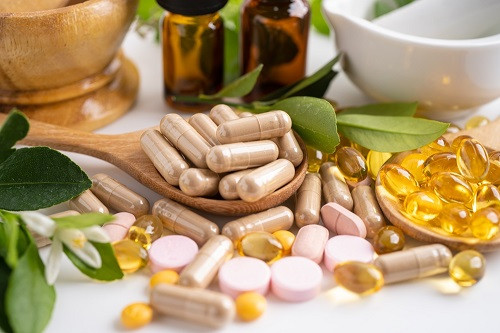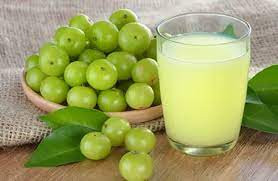“Herbal Supplements and Liver Health: Unveiling the Risks of Turmeric, Green Tea, and More”

IIE DIGITAL DESK : The surge in popularity of herbal supplements has led many to believe that "natural" equates to "safe." However, recent studies have highlighted that certain herbal products, including turmeric and green tea, may pose significant risks to liver health. A comprehensive analysis by researchers at the University of Michigan revealed that millions of Americans consume supplements containing botanicals linked to liver toxicity .
The study, published in the journal JAMA Network Open, examined data from the National Health and Nutrition Examination Survey conducted between 2017 and 2020. It found that approximately 4.7% of U.S. adults reported taking supplements containing at least one of six botanicals known for their potential hepatotoxicity: turmeric, green tea, ashwagandha, black cohosh, garcinia cambogia, and red yeast rice . This translates to an estimated 15 million adults regularly consuming these potentially harmful supplements.
Turmeric, particularly its active compound curcumin, has been associated with liver injuries in several cases. While moderate consumption of turmeric as a spice is generally considered safe, high-dose supplements—especially those enhanced with piperine to increase bioavailability—have been linked to liver damage. Reports indicate that at least 70 cases of liver injury have been connected to turmeric supplements, with some instances leading to severe conditions like hepatitis and liver failure .
Green tea extract, commonly consumed for its antioxidant properties, has also raised concerns regarding liver health. Excessive intake of green tea extract, particularly in supplement form, has been associated with hepatotoxicity. A 2018 review by the European Food Safety Authority noted that daily intake of 800 mg or more of epigallocatechin gallate (EGCG), a key component in green tea, could increase the risk of liver damage .
Other botanicals such as ashwagandha, black cohosh, garcinia cambogia, and red yeast rice have also been implicated in liver toxicity. Ashwagandha, often used for stress and anxiety, has been linked to liver injury in some cases. Similarly, black cohosh, commonly used for menopausal symptoms, and garcinia cambogia, marketed for weight loss, have been associated with hepatotoxicity .
The lack of stringent regulatory oversight in the herbal supplement industry exacerbates these risks. Many supplements are marketed with claims of health benefits without sufficient scientific evidence or safety testing. This unregulated market makes it challenging for consumers to discern which products are safe and which may pose health hazards.
Healthcare professionals advise caution when considering the use of herbal supplements. It's essential to consult with a healthcare provider before starting any new supplement regimen, especially for individuals with existing health conditions or those taking prescription medications. Being aware of the potential risks and monitoring for symptoms of liver distress—such as jaundice, abdominal pain, nausea, or dark urine—can help in early detection and prevention of serious health issues.
While herbal supplements like turmeric and green tea are often perceived as natural and safe alternatives to conventional medicine, they carry potential risks, particularly concerning liver health. Consumers should exercise caution, seek professional medical advice, and remain informed about the products they choose to incorporate into their health routines.
You might also like!














